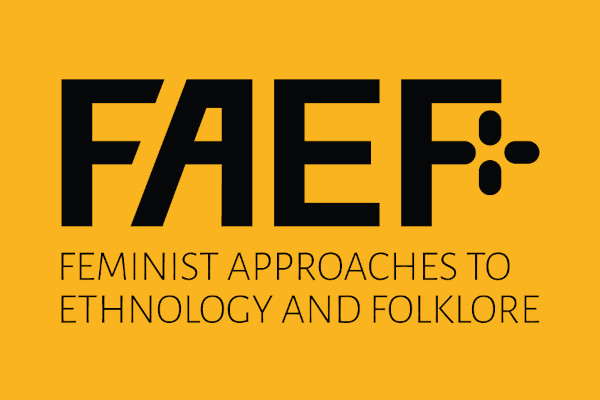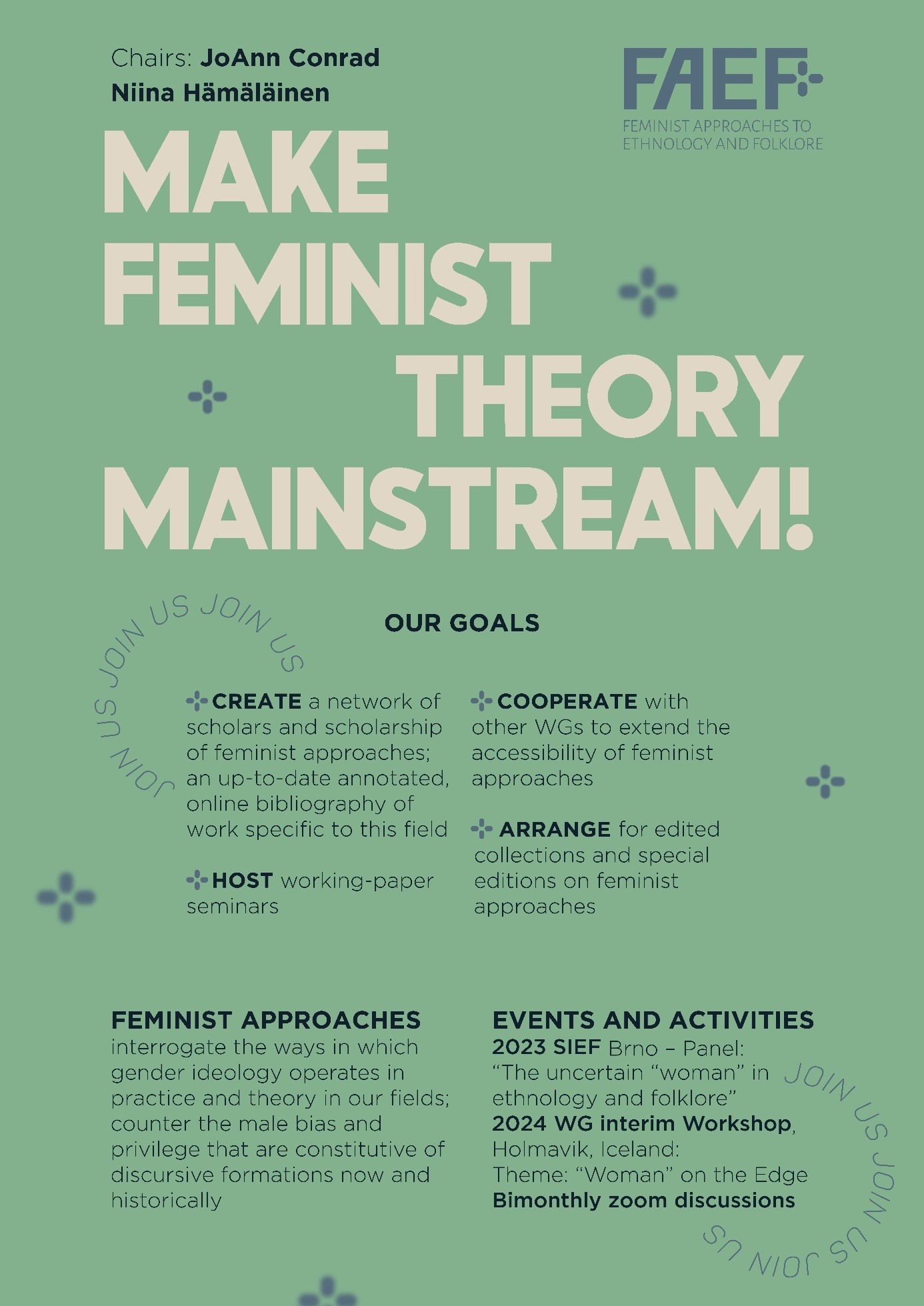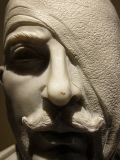
Working Group in Feminist Approaches to Ethnology and Folklore
Workshop 2026: Embodiment Revisited
The working group Feminist Approaches to Ethnology and Folklore is looking forward to our next interim meeting on 13-15 August 2026 in Helsinki, Finland. This will be a workshop on the theme of Embodiment Revisited. Please find here the preliminary workshop description. More information, including a call for applications, will be shared in due time on our website.
Looking back on Aberdeen 2025
After its founding in 2023 at the SIEF conference in Brno, the FAEF working group is proud to report that we had a wonderful conference in Aberdeen. We co-sponsored two panel sessions – one with the WG on Archives, and one with the WG on Cultural Perspectives on Education and Learning. And our Working Group convened a panel specifically on Un-writing through feminist approaches. These were all lively panels and resulted in vigorous discussions. All of these sessions were recorded and available through the SIEF 2025 conference site. We plan at least two publications from these panels. The response to our panels resulted in a significant bump in new members.
At our annual general meeting we presented our new logo (see above). We also held elections in which we officially elected Rozemarijn van de Wal as Secretary and elected a new board member – Colleen Deatherage. Niina Hämäläinen and JoAnn Conrad will stay on as co-chairs, and Yuliia Andriichuk will stay as our student liaison and excellent graphic designer.

A Feminist annotated bibliography
We want to draw your attention to the Working Group’s collaborative annotated bibliography. Why do we need one? Because there are no existing research tools for locating feminist scholarship in our fields. The annotated bibliography will be a centralized, accessible, searchable, exportable bibliography of feminist scholarship in folklore and ethnology, which will help us situate our own work and build on existing ideas.
This is more than a collection of PDF’s, it is a bibliographical database. The Zotero tool allows us to tag entries with keywords and to add abstracts. We aim to annotate all entries with a short abstract outlining how the main ideas of the indexed work are relevant to the working group’s focus. But to make this dream a reality, we need the help of all of our members. Please have a look at our instructions and get involved!




